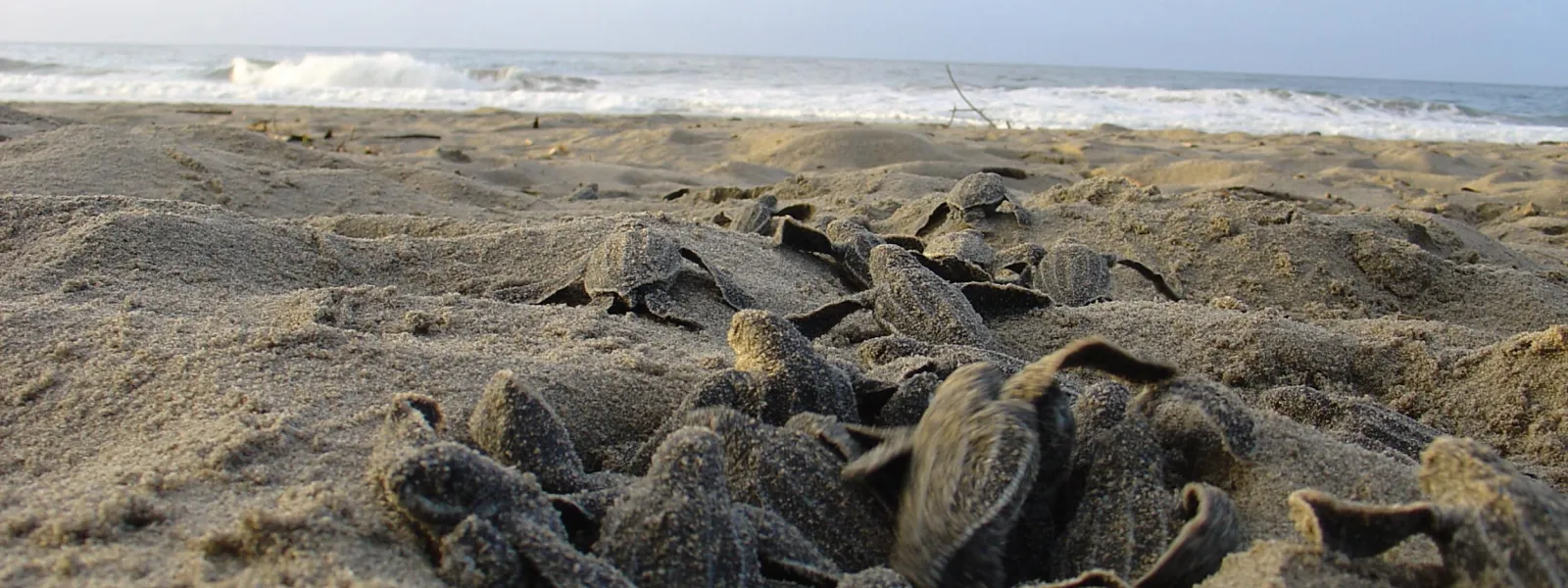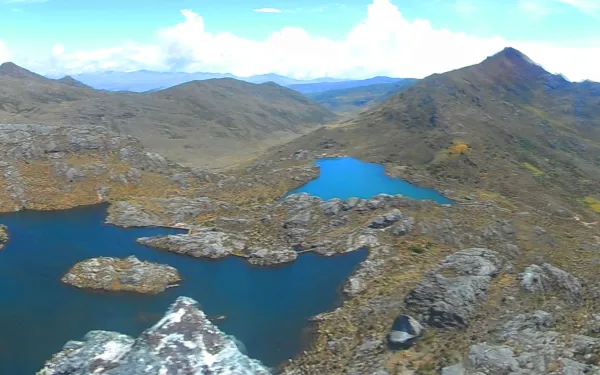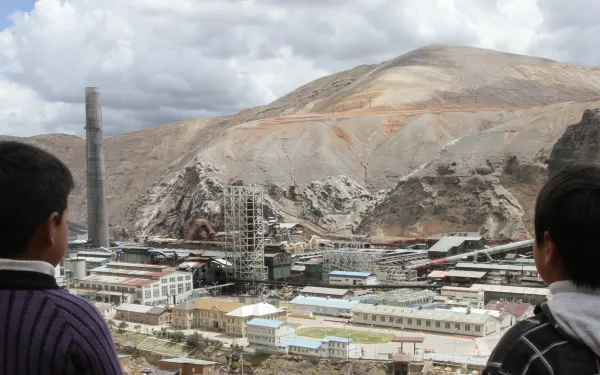
Project
Victory: Haven for leatherback sea turtles declared off-limits
In two separate rulings in May 2008, the Costa Rican government stood up for endangered leatherback sea turtles against business interests intent on building within their protected habitat.
A relative of dinosaurs, the endangered leatherback sea turtle has continually found its home in Costa Rica under threat. Poor planning and lack of oversight destroyed its nesting beaches in Flamingo and Tamarindo.
This time developers had their eye on the Leatherback National Marine Park (LNMP), home to some of the most important Leatherback nesting beaches in the Eastern Pacific Ocean.
A municipal zoning regulation was enacted that would authorize construction in part of the LNMP. However, AIDA and its local partner CEDARENA, together with the Leatherback Trust, successfully defended the park.
The Constitutional Chamber of the Costa Rican Supreme Court nullified the municipal zoning regulation, safeguarding the Leatherback sea turtles and their nesting beaches. This ruling closely followed another court victory by AIDA, CEDARENA, and Justice for Nature that required the government to expropriate the private lands within the LNMP, otherwise destined to be tourist playgrounds.
The leatherback sea turtle will continue to face threats from tourism development, fishing, egg poaching, and pollution. However, AIDA and its partners have shown that the law can be used to make a powerful difference.
Related projects

World Bank divests from Eco Oro Minerals and mining project in Colombian Páramo
In an important step for the protection of Colombia’s páramos, the International Finance Corporation (IFC) – the private lending arm of the World Bank – has decided to divest from Canadian mining company Eco Oro Minerals. The company’s Angostura gold mining project is located in the Santurbán Páramo, a protected ecosystem that provides water to millions of people. Bogota, Washington, Ottawa, Amsterdam. The International Finance Corporation (IFC), private lending arm of the World Bank Group, has decided to divest from Canadian company Eco Oro Minerals. The company’s Angostura mine is located in Colombia’s Santurbán Páramo, a protected high-altitude ecosystem that provides water to millions of people. Colombian law prohibits mining in páramos. "We applaud the Bank’s decision to side with the Committee for the Defense of Water and the Santurbán Páramo regarding the inviability of mining in the páramo," said Alix Mancilla, representative of the Committee. "We now call on the Colombian government to abstain from issuing environmental permits to any mining project which may affect Santurbán." "The IFC’s divestment is a serious political and financial blow to mining in the Santurbán páramo," said Carlos Lozano Acosta of the Interamerican Association for Environmental Defense (AIDA). "The Colombian government must now reflect on its lenient approach to large scale mining in páramos, which is illegal under national law." The IFC’s decision comes after a report issued by the Office of the Compliance Advisor Ombudsman (CAO), an independent accountability mechanism, which found that the IFC's investment did not adequately consider the environmental and social impacts of the project, breaching the financial institution's internal policies. The report was developed in response to a complaint the Committee filed before the CAO in 2012, with support from the international organizations included herein. "After intense public pressure, the IFC finally got the message and, by divesting, amplifies it further. The decision to divest strengthens the Colombian State’s ability to protect water and regulate in the public interest. We applaud this decision by the IFC, which will have an impact on Colombians everywhere," affirmed Carla Garcia Zendejas of the Center for International Environmental Law (CIEL). The IFC's decision occurs in the context of Eco Oro’s announcement that it has initiated international arbitration against Colombia, under the terms of the Canada-Colombia Free Trade Agreement at the International Centre for Settlement of Investment Disputes (ICSID), part of the World Bank. The company is filing the suit over the State’s measures to protect Colombia’s páramos. "Eco Oro Minerals' interest in Colombia is no longer about mining. Rather, it is about extorting a sovereign government for millions in taxpayer dollars and exerting pressure to weaken protections for water in Colombia. The IFC’s divestment not only extricates the Bank from a clear conflict of interest, but also highlights the presence of ill-advised mining projects in the Colombian páramo and the illegitimacy of the suit," added Garcia Zendejas of CIEL.
Read more
Clear accounting for dams and climate change
By Astrid Puentes Riaño (column originally published in El País) “Our climate is warming at an alarming, unprecedented rate and we have an urgent duty to respond,” world leaders concluded at the 22nd United Nations Climate Conference (COP22). Representatives from more than 200 nations gathered in Morocco from November 7 to 18 for the first global meeting since the Paris Agreement on climate change entered into force. We should respond with urgency, but also with intelligence. Today, thousands of large dams are being planned and built around the world. More than a million dams already block half the rivers on the planet. Hundreds of hydropower projects are planned or under construction in the Amazon alone. Many are promoted as clean energy and as solutions to climate change. But that’s just not true. Researchers at Washington State University recently concluded that dams are an important source of greenhouse gas emissions. In addition to carbon dioxide and nitrous oxide, dams release large amounts of methane, a gas that traps 34 times more heat than carbon dioxide. The findings were published in the scientific journal Bioscience. Far from being a solution, dams actually aggravate climate change. Until now, scientific evidence had suggested that dams in tropical areas emit greenhouse gases. The WSU study, however, concluded that reservoirs emit greenhouse gases regardless of their latitude or their purpose (power generation, flood control, navigation or irrigation). The researchers concluded that, globally, reservoirs emit approximately 1.3 percent of all greenhouse gas emissions generated by mankind. That’s greater than the total annual emissions of Canada. Further studies are required to quantify exactly how much dams emit and to understand how they vary according to the particular conditions of each reservoir. For now, it seems that variables such as temperature and eutrophication (increased nutrients in water that increase algae and decrease oxygen) may be the most relevant. Currently, greenhouse gas emissions from dams aren’t monitored. Yet every day, they’re released into the atmosphere, contributing to climate change. Globally, our climate accounts aren’t complete. The WSU study marks a milestone in our understanding of the true role dams play in creating climate change. It’s essential that scientific policies, programs, standards, and analyses take these emissions into account. National and international bodies—including the Intergovernmental Panel on Climate Change, the World Bank, the Inter-American Development Bank, the Green Climate Fund, and private companies—must incorporate current and future dam emissions in their assessments. Only then will be have clear accounts. Only then can we avoid, by ignoring clear evidence, continuing to make climate change worse—particularly for the most vulnerable among us. It’s worth noting that dams have severe impacts on human rights. They’re also very expensive and take decades to plan and complete. What’s more, viable alternatives to dams have already been found—cheaper, more efficient, and quicker to build. To respond to climate change with urgency, intelligence, and effectiveness, we have to be clear on its causes. We have to account for all significant contributors, including dams. We have this opportunity today. And we have no more time to lose.
Read more
La Oroya: Over a decade’s wait for justice
From the time Isabel* was born, she has breathed toxic air.She’s had heavy metals in her blood for all 13 years of her young life.Her hometown, La Oroya, a small city in the Peruvian Andes, was labeled in 2007 as one of the world’s most polluted places. A metal smelter has been operating there for nearly a century, with little regulation and no attention to human health.Children like Isabel suffer most from toxic pollution. Their developing brains and bodies are terribly vulnerable to lead and other heavy metals, which inhibit growth and often cause permanent damage.Nearly all of La Oroya’s children have heavy metals in their blood, at concentrations many times limits established by the World Health Organization. And many residents suffer from chronic respiratory illness.Their health issues result directly from corporate leaders’ disregard for the environment and for the people who live near the smelter. The State of Peru also bears responsibility for its inaction.That’s why a group of residents joined together to fight for the their children’s health and their city’s future.Isabel’s father, Pablo, has been a vocal leader in the community’s struggle against the government and the US-owned corporation responsible for contaminating their air, their land, even their water. He sees no other way forward.“What kind of world will we leave for our children if we don’t defend our land, if we don’t defend our biodiversity?” he said in a recent interview. A group of 65 residents joined as petitioners in a case AIDA and other organizations brought before the Inter-American Commission on Human Rights 10 years ago. Since then 14 more have added their names to the complaint; four have died. Today, they still wait for justice.In 2007 the Commission recommended precautionary measures that urged the State to adopt adequate measures to diagnose the beneficiaries and treat those at risk of irreparable damage. Since then, air quality in La Oroya has improved somewhat, but the recommended health system is still woefully inadequate.The Commission has yet to file its report on the merits of the case. A finding of merit would include more forceful recommendations. If the State still doesn’t respond, AIDA will take the case to trial before the Inter-American Court of Human Rights.For now, all the petitioners can do is wait some more.Despite the years gone by, we won’t stop fighting until the people of La Oroya see justice.We believe their courage and struggle will have an impact beyond their community, setting a precedent for future cases across the Americas. Because a victory would establish in international law that damages from toxic contamination are human rights violations.And that would mean a brighter future not just for Isabel and La Oroya, but also for communities wherever shortsighted corporations dump their toxic by-products. __* Name changed to protect privacy.
Read more